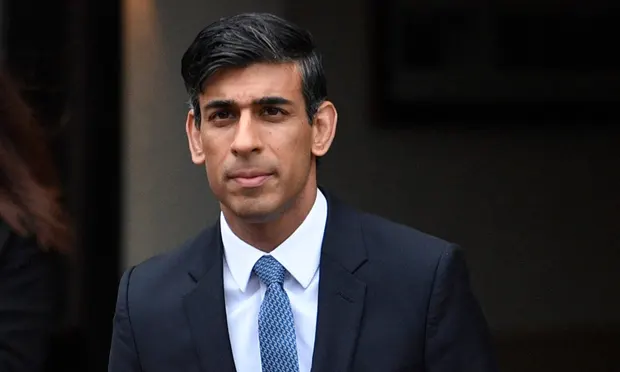After a string of damning revelations regarding the Chancellor of the Exchequer’s financial issues and the notion that he isn’t doing enough to aid Britons struggling with rising living costs, Rishi Sunak favorability rating fell for the first time, falling below that of Prime Minister Boris Johnson.
According to the most recent monthly tracker survey conducted by Savanta ComRes, which was published on Wednesday, Sunak received a net rating of minus 20 points. This represents a decrease of 26 points in a month, and it compares to a peak of + 30 in 2020. On April 8-10, an online poll of 2,145 persons in the United Kingdom was conducted, just before both the chancellor and Johnson were fined by police for violating the coronavirus regulations that their own government had enacted.
That he was rated as the most likely successor to Johnson by politicians and the media until recently is yet another setback for the chancellor, who gained popularity by allowing the Treasury to spend during successive Covid-19 lockdowns and was widely considered to be Johnson’s most likely successor until recently.
The president has been accused for neglecting to assist the most disadvantaged families in dealing with a cost of living problem when he delivered an economic address last month, which included criticism from members of his own party.
A series of damning revelations were made this week, including the fact that his wife Akshata Murthy has non-domiciled status in the United Kingdom, which means she does not have to pay British taxes on her foreign profits. Under heavy pressure, the daughter of an Indian billionaire, Narayana Murthy, the co-founder of Infosys Ltd., later stated that she would now comply with the law.
Sunak was also obliged to confess that he had a green card from the United States that would expire in October 2021, by which time he would have been chancellor for more than a year and a half. The news, together with his wife’s tax status, contributed to the view that the family did not have a long-term future in the United Kingdom.
According to Chris Hopkins, director of political research at Savanta ComRes, “the fact that we’ve seen such a dip in favorability during a turbulent month for the chancellor ultimately points to the reality that any public goodwill he may have built up during the pandemic has all but disappeared.” The survey was conducted after Sunak was penalised, which resulted in a “26-point decrease in one month,” which was “unusual,” but might have been far worse, according to him.
Meanwhile, Johnson’s rating has risen for the third month in a row, reaching a negative 19 points. Approximately 34% of those polled said they would vote for the ruling Conservative Party in a general election, while 40% said they would vote for the main opposition Labour Party in that election.



















